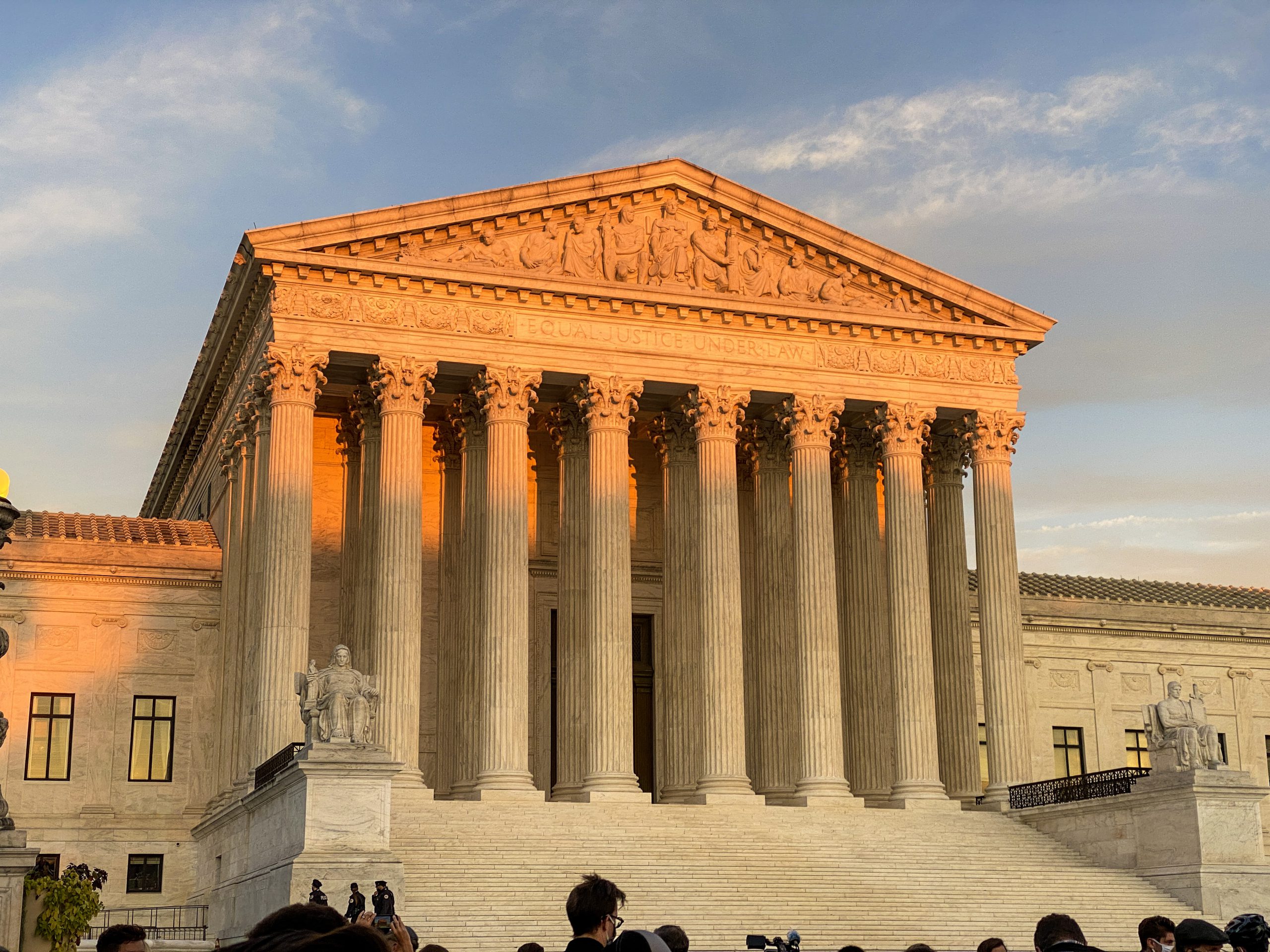Indianz.Com > News > Montana Free Press: Supreme Court supports tribal sovereignty in law enforcement case

U.S. Supreme Court upholds tribal law enforcement authority over non-Natives
United States v. Cooley originated on the Crow Reservation in 2016.
Friday, June 11, 2021
Montana Free Press
The United States Supreme Court last Tuesday reversed a lower court ruling limiting tribal law enforcement authority to stop and search non-Native residents. The high court’s unanimous decision in United States v. Cooley, which originated on the Crow Reservation in southeast Montana, was heralded as a win for tribal sovereignty and law enforcement authority.
In the June 1 opinion issued by Justice Stephen Breyer, the court found that restricting tribal law enforcement officers from stopping, searching and temporarily detaining non-Native people could compromise officers’ ability to protect the “health or welfare of the tribe.” That language stems from a previous case, Montana v. United States, in which the court ruled against the Crow Tribe’s ability to regulate fishing and hunting by non-tribal members on land that is not owned by the tribe. That limitation on the tribe’s enforcement authority, Breyer wrote, was issued with important exceptions, including a provision for responding to threats against a tribe’s health or welfare.
“To deny a tribal police officer authority to search and detain for a reasonable time any person he or she believes may commit or has committed a crime would make it difficult for tribes to protect themselves against ongoing threats,” Breyer wrote in the Cooley decision. “Such threats may be posed by, for instance, non-Indian drunk drivers, transporters of contraband, or other criminal offenders operating on roads within the boundaries of a tribal reservation.”
Mara covers Montana’s social welfare and criminal justice systems, including public health matters such as substance use disorders and mental health care. She also tracks policy and social issues that affect LGBTQ+ people. Prior to joining Montana Free Press, Mara worked at Slate and WNYC, where she focused on radio and podcasts. She got her start in audio journalism as an intern at Montana Public Radio. Contact Mara at msilvers@montanafreepress.org, 406-465-3386 ext. 3, and follow her on Twitter.
Note: This story originally appeared on Montana Free Press. It is published under a Creative Commons license.
U.S. Supreme Court Decision: U.S. v. Cooley
Syllabus |
Opinion [Breyer] |
Concurrence [Alito] |
Full Document
Briefs: United States v. Cooley
Here are the briefs on the merits in support of tribal interests in United States v. Cooley.
Brief of Petitioner United States
Amicus Brief of National Indigenous Women’s Resource Center
Amicus Brief of the Lower Brule Sioux Tribe, et al.
Amicus Brief of Ute Indian Tribe
Amicus Brief of Indian Law and Policy Professors
Amicus Brief of National Congress of American Indians, et al.
Amicus Brief of Current and Former Members of Congress
Amicus Brief of Former US Attorneys
Amicus Brief of the Cayuga Nation, et al.
9th Circuit Court of Appeals Decisions
United States v. Cooley [Panel Decision] (March 21, 2019)United States v. Cooley [Denial of En Banc] (January 24, 2020)
Indianz.Com on SoundCloud
Jam out with the justices! Listen to lawyers! No, really, these are important U.S.
Supreme Court cases.
Related Stories
Cronkite News: Supreme Court finally ‘got it right’ on tribal sovereignty (June 4, 2021)SCOTUSBlog: Supreme Court supports tribal sovereignty over non-Indians (June 3, 2021)
Supreme Court backs tribal sovereignty in law enforcement case (June 1, 2021)
‘Endangers everyone on Indian reservations’: Supreme Court urged to respect tribal sovereignty (March 24, 2021)
U.S. Supreme Court: United States v. Joshua James Cooley (March 24, 2021)
SCOTUSBlog: Supreme Court takes up messy tribal sovereignty case (March 22, 2021)
U.S. Supreme Court sets oral argument in ‘bad men’ treaty rights case (February 4, 2021)
Search
Filed Under
Tags
More Headlines
Native America Calling: Euchee food, whale hunting and young gardeners on The Menu
Cronkite News: Navajo psychiatrist addresses mental health needs
Chuck Hoskin: Tell the whole story about the theft of tribal lands
Native America Calling: A sample of Native Guitars Tour 2024
Cronkite News: Native organization carries on horse traditions
Native America Calling: How Native literature is changing the mainstream narrative
Native America Calling: No ordinary animal
Native America Calling: Safeguards on Artificial Intelligence
NAFOA: 5 Things You Need to Know this Week
Chuck Hoskin: Cherokee Nation takes the lead for our environment
Native America Calling: Earth Day assessment for Native peoples
Cronkite News: Gathering addresses ‘epidemic’ among Native people
VIDEO: Cody Desautel on tribes and federal forest management
AUDIO: Legislative Hearing on Discussion Draft of Forest Management Bill
Native America Calling: Remembering the 1974 Navajo border town murders
More Headlines
Cronkite News: Navajo psychiatrist addresses mental health needs
Chuck Hoskin: Tell the whole story about the theft of tribal lands
Native America Calling: A sample of Native Guitars Tour 2024
Cronkite News: Native organization carries on horse traditions
Native America Calling: How Native literature is changing the mainstream narrative
Native America Calling: No ordinary animal
Native America Calling: Safeguards on Artificial Intelligence
NAFOA: 5 Things You Need to Know this Week
Chuck Hoskin: Cherokee Nation takes the lead for our environment
Native America Calling: Earth Day assessment for Native peoples
Cronkite News: Gathering addresses ‘epidemic’ among Native people
VIDEO: Cody Desautel on tribes and federal forest management
AUDIO: Legislative Hearing on Discussion Draft of Forest Management Bill
Native America Calling: Remembering the 1974 Navajo border town murders
More Headlines